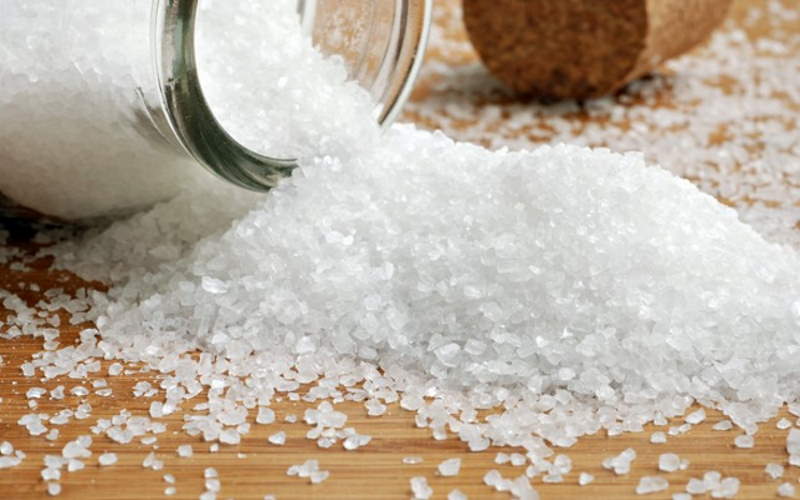For those who experience it for the first time, lockjaw can be absolutely terrifying. The idea of having your jaw stuck in a certain position where you can’t open or close it is easily one of the worst feelings you can experience. It’s painful and often happens without warning.
But what exactly is happening in your jaws when they get locked like that? How do you treat it? Are there natural ways and remedies to cure it? Thankfully, there are some ways to cure lockjaw naturally.
Why Do Jaws Lock?
Before diving deeper, it is appropriate to understand lockjaw correctly. Lockjaw is a general term used to define stiffness, soreness, and pain around the jaw muscles, and the inability to open or close the jaw. It is typically caused by muscle spasm, muscle strain, or simply temporary dislocation of the temporomandibular joint (TMJ). In many cases, it can be a symptom of a problem in the TMJ. You may also find the term “trismus,” which means restricted jaw movement and is exactly the same thing as lockjaw.
Lockjaw can also be a result of a tetanus infection – an incredibly serious and often fatal bacterial infection caused by a cut from contaminated rusty metal. The lockjaw that will be discussed here is the common lockjaw related to disorders around the mouth and jaw, such as TMJ disorder.
Lockjaw symptoms
While it may seem that lockjaw happens randomly, it actually comes with symptoms that could provide warning. Some of the more common symptoms include:
- Recurring nagging headaches
- Clicking and popping sound when opening and closing your mouth
- Jaw pain and stiffness when you yawn or open your mouth widely
Tips on how to cure lockjaw naturally
Warm compress
Lockjaw pain often reverberates all the way through the neck and shoulders; managing pain right from the source is a good way to keep it from affecting surrounding areas. A good old warm compress can go a long way in managing pain, stiffness, and soreness caused by lockjaw. This is because the warmth improves blood circulation to the affected area, releasing tension and easing stiffness. You can use a heating pad, a hot water bottle, or simply a warm clean towel.
Use warm compress at least three times a day, and do not exceed 20 minutes per session.
Cold compress
You can also opt for cold packs to numb the pain. Hold the ice pack (or ice wrapped in a clean towel) to the side of your face near your jaw joint for about ten minutes. Repeat a few times throughout the day as needed.
Massage your jaw
Relieve pain and stiffness in your jaw area by massaging the jaw. This works best after a warm compress, since the warmth has improved the blood flow and the area has reduced tightness. You can use massage oils or diluted essential oils (essential oil mixed in a carrier oil such as coconut oil).
To massage your jaw, rub the muscles next to the ears gently in a circular motion. Do this multiple times daily, especially before bedtime.
Stay hydrated
Dehydration is often the underlying cause of many lockjaw cases, and being dehydrated actually makes the symptoms worse. This is because when your body doesn’t have enough fluids, the muscles are unable to relax and contract effectively, which causes tension. Muscle tension in the jaw area triggers locking of the jaw joint. For this reason, you need to keep your body well hydrated.
It is important to note that the amount of proper water intake differs from one person to another. This is because different factors come into play, such as age, health, and daily activity level. To get the right amount of water you need on a daily basis, it is best to consult your doctor for personalized guidelines. A good way to check your water level throughout the day is to check the color of your urine. Light colored urine means your body is well hydrated. Deep yellow color means you need to drink more water. Of course, taking food supplements and vitamins can affect the color of your urine.
Eat foods rich in calcium and magnesium
As said earlier, locking of the jaw results from tense jaw muscles, which restricts the opening and closing of the mouth. One good way to ease muscle tension is to increase your dietary intake of two key elements: calcium and magnesium.
Calcium isn’t just for the bones alone. It is also essential for the contraction and relaxation of muscles. Almonds, coconut, and milk products are rich in calcium. You can also, of course, take the food supplement or multivitamins route.
Magnesium allows the muscles to relax, which is helpful for pain relief and easing discomfort from jaw pain. Examples of food rich in magnesium include cashews, pumpkin seeds, oats, and of course, vegetables like spinach, okra, etc. For fish, you can opt for Atlantic mackerel, Halibut, and Chinook salmon.
Gargle with salt water
Gargling salt water can help relax the nerves and ease up tension around the jaw muscles. This makes it an effective and natural remedy for reducing the intensity of pain and swelling associated with lockjaw. Subsequently, salt can aid in drawing out infections present in the mouth.
Mix and dissolve a teaspoon of table salt into a glass of water and gargle for a minute before spitting. Repeat at least three times a day.
Obviously, do not swallow the salty water, as too much salt can cause dehydration and worsen the symptoms.
Use Epsom salts
As said earlier, magnesium can help relieve pain by reducing tension and relaxing your muscles. Epsom salt is one of the best natural remedies to help you with that. Once absorbed through the skin, the magnesium helps eliminate the stiffness and pain associated with muscle tension.
Epsom salt contains a high concentration of magnesium sulfate – a chemical compound made from a combination of magnesium, sulfur, and oxygen. Despite its name, Epsom salt is very different from your ordinary table salt.
Add half a cup of Epsom salt to your bath water and stir to dissolve. Then, soak in your bath for at least 15 minutes. Also, soak a face towel in the bath water and use it to gently massage your face. Focus the massage around the jaw area for pain relief.
Note that, while these remedies work in many cases, nothing replaces the benefits of professional medical attention. While lockjaw is non-life threatening, it is best to consult your doctor.


























